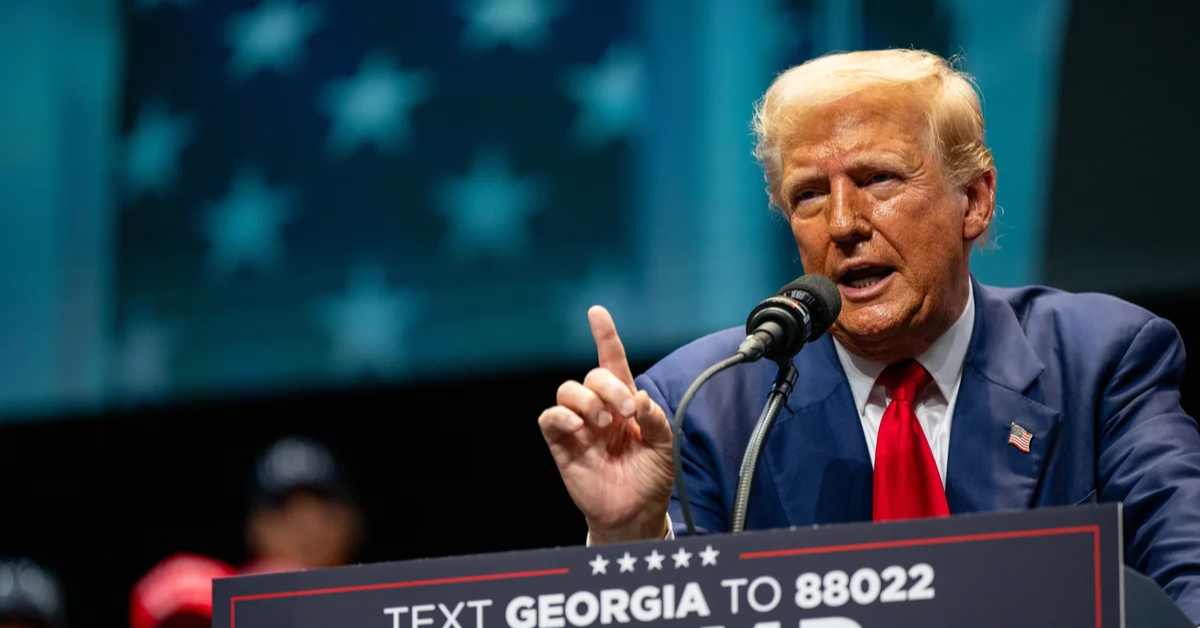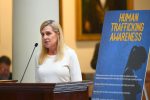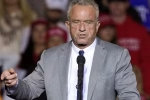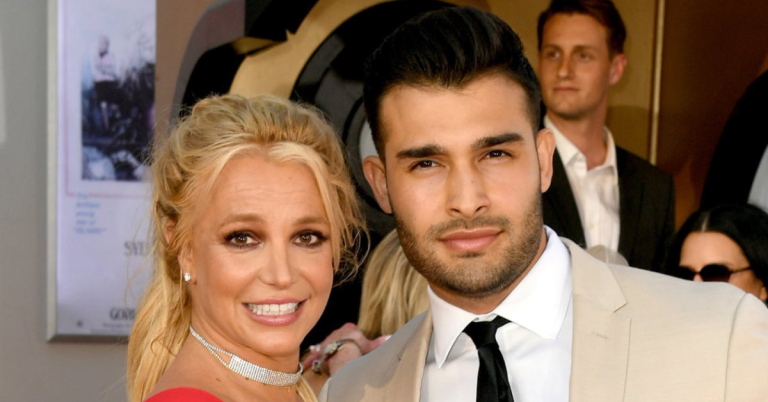President-elect Donald Trump made headlines on Friday with a less-than-typical announcement about his new hire for his upcoming second administration. Trump shared the news of Morgan Ortagus being appointed as Deputy Special Presidential Envoy for Middle East Peace, but the way he introduced her raised eyebrows.
The announcement was far from a traditional, formal press release. Instead, it came with a series of surprising comments and mixed messages that caught many off guard.
The post, shared on Trump’s Truth Social platform, started with a note of approval. Trump said he was “pleased” to announce Ortagus’s new role, but the rest of the statement quickly took an unexpected turn. He mentioned that while he was happy to welcome Ortagus to the team, there was some history between them that would need to be addressed.
“I am pleased to announce Morgan Ortagus as Deputy Special Presidential Envoy for Middle East Peace to the Honorable Steven Witkoff,” Trump wrote in his post. “Early on, Morgan fought me for three years, but hopefully, she has learned her lesson,” he continued, referring to their past disagreements and tensions.
This comment suggested that Ortagus had been part of some internal conflicts or disagreements during her previous work with the Trump administration, though details were not fully disclosed.
What followed was even more surprising. Trump commented that appointments like this “usually don’t work out,” a statement that seemed to question Ortagus’s future role.
However, he made it clear that she had strong support within the Republican Party, adding, “I’m not doing this for me; I’m doing it for them. Let’s see what happens.” The cryptic tone of the message left many wondering about the true intentions behind her hiring.
Trump continued with a more positive note, acknowledging Ortagus’s professional qualifications and experience. He explained that she had extensive experience in diplomacy and national security, which made her well-suited for her new position. “Morgan Ortagus has had experience in Diplomacy and National Security,” Trump wrote. “She is an active U.S. Navy Reserve Intelligence Officer.”
From 2019 to 2021, Ortagus worked as the spokesperson for the State Department under former Secretary of State Mike Pompeo. During her tenure, she played a pivotal role as a member of the U.S. team that negotiated the historic Abraham Accords, which established diplomatic relations between Israel and several Arab nations, including the United Arab Emirates and Bahrain.
This achievement was one of the Trump administration’s signature accomplishments in foreign policy, and Trump wasted no time highlighting Ortagus’s involvement in these groundbreaking efforts.
Before her time at the State Department, Ortagus worked at the U.S. Department of the Treasury as a financial intelligence analyst. She also served as the Deputy U.S. Treasury Attaché to the Kingdom of Saudi Arabia from 2010 to 2011. Trump’s message highlighted these credentials as evidence of her significant background and expertise in both national security and financial intelligence.

Despite the positive emphasis on her professional qualifications, Trump’s message still ended with a somewhat odd conclusion: “Good luck, Morgan!” This final note seemed to be both a formal send-off and a reminder that while Ortagus had impressive credentials, her future in this new role was far from guaranteed.
While this appointment is noteworthy, it’s also important to consider the context of Ortagus’s relationship with the Trump family. The Washington Post’s Josh Rogin reported in 2019 that Ortagus was close to the Trump family, particularly Eric Trump and Ivanka Trump.
In addition, Trump publicly endorsed Ortagus when she launched a campaign for a congressional seat in Tennessee in 2022, though her bid was short-lived. This personal connection to the Trump family likely played a role in her appointment, although Trump’s introduction of her was far from a glowing endorsement.
The fact that Trump took to Truth Social to make the announcement, a platform he uses to communicate directly with his supporters, also adds an interesting layer to the situation.
Traditionally, political appointments are announced through more formal channels such as press releases or public statements. However, Trump’s use of social media to both introduce and comment on Ortagus’s hiring makes this an even more unconventional move.
The combination of Trump’s statement about “things usually not working out,” his references to Ortagus’s history with him, and his mixed message of support has left many political observers wondering about the future of this appointment. While Trump may have been trying to balance a formal acknowledgment of Ortagus’s experience with a candid reflection on their past interactions, the tone of the message is far from typical.
With the Middle East peace process remaining a critical area of focus for the Trump administration, all eyes will be on Ortagus as she steps into this significant role. Whether her past differences with Trump will affect her work or whether she will rise to meet the challenges of her new position remains to be seen.
For now, the Trump administration’s unusual introduction of Ortagus has certainly made her appointment one of the most talked-about hires of the upcoming administration.
Note: Every piece of content is rigorously reviewed by our team of experienced writers and editors to ensure its accuracy. Our writers use credible sources and adhere to strict fact-checking protocols to verify all claims and data before publication. If an error is identified, we promptly correct it and strive for transparency in all updates.







Leave a Comment